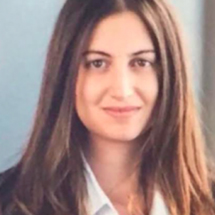The application process to get into top MBA programs in the US is daunting, even more so for international students, as there is additional work required for the applicant and different acceptance conditions to navigate.
Why opt for an MBA in the US?
Most top ranked MBA programs are located in the US. An MBA from a leading US university is prestigious, recognizable worldwide, and will open many doors. It is a stepping-stone to either climb the corporate ladder or take the entrepreneurial route. Most students attending prestigious business schools will receive incredible job opportunities before graduation. Although MBA slots for international students may be restricted, it is possible to get admitted with hard work and a well-studied application strategy.
Give yourself time
Take two to three years to prepare yourself before starting the application process. This preparation can include visiting the business schools you are interested in, attending classes, and networking with current students. This way, not only can you learn a lot about the culture and values of each program, but you can also share some anecdotes about your campus visits in your application. Visiting several universities will allow you to select the right schools for you. In addition, your effort to travel all the way to the US for school visits shows your commitment, and will be well regarded.
Prepare for exams
In addition to the GMAT or GRE, an English test, such as TOEFL or IELTS, is required for international students to demonstrate an adequate English level. Your test scores should fit within the range of acceptable scores of the university you are applying to. You are in good shape if your scores are at or above the school averages. If you need help reaching your target scores, Cambridge Coaching offers great resources.
Follow transcript rules
Your transcripts should be translated into English with the help of certified interpreters. You should also convert your grades to the American GPA system. Keep in mind that some business schools may also ask for an explanation of the grading system of your undergraduate university.
Enrich your resume with professional experience
Although it is not required for acceptance, having professional experiences is strongly preferred among MBA candidates in order to add value to class discussions. People who apply without work experience can only rely on their grades to get in, whereas people with professional experience can demonstrate growth at work and real leadership potential. Elite MBA programs usually choose people who are accomplished at work and with the potential to become world leaders. You should highlight the benefits of being an international candidate in your resume. In effect, working outside the US can be a good way to differentiate yourself from the rest of the applicants: your communication and cross-cultural skills, as well as your exposure to different work practices will be highly valued in the classroom.
Leverage the written application
If you are applying to several MBA programs, make sure not to copy and paste your essays. Each school has a unique “personality” and set of skills that they are looking for in a candidate. Schools want to know what makes you unique and what your future goals are, so be yourself. This is an opportunity to show your leadership, adaptability, and cross-cultural skills, especially as an international candidate. Make sure to review the application and essays to guarantee that there are no disqualifying grammatical or syntax errors.
Prepare for interviews
Receiving an interview invitation is a good sign! It means that your application was appreciated and well received. Many interview questions are behavioral and your answers must follow the STAR format: Situation, Task, Action, and Result. So make sure to prepare answers to possible questions ahead of time. Practice beforehand with people and in front of a mirror. The day of the interview, arrive 10 minutes early. Dress professionally, maintain eye contact and speak confidently about your skills. Some international applicants tend to shy away from self-promotion, but it is actually important to emphasize your achievements and show how and why you are a good fit for the school.
Plan visa matters
Once you receive your acceptance, you should prioritize completing the related paperwork to avoid any delays. After your successful F-1 student visa application, the university will send you an I-20 application. Take your passport and the I-20 to the US Embassy. You may be asked to demonstrate your ability to fund your MBA experience. Arriving to the US on time is necessary to start the program right away and manage housing matters.
Apply to more than one program
Keep in mind that rejection may also be part of the process. A good rule of thumb is to apply to at least six schools to maximize your chances of getting in: two ideal schools that you aspire to go to, two schools that are within reach, and two schools that you believe could be safety schools. If you are set on one school in particular and it doesn’t work out, take time to improve your credentials and apply again the following year.
Attending a prestigious business school in the US is an amazing opportunity for international applicants. I hope you find the guidance above helpful during your application journey.
Are you working on your MBA applications and feeling a little lost? We approach MBA admissions holistically, meaning we can help you with GMAT preparation, planning your MBA timeline, and even with composong your essays. Interested in learning more?


Comments